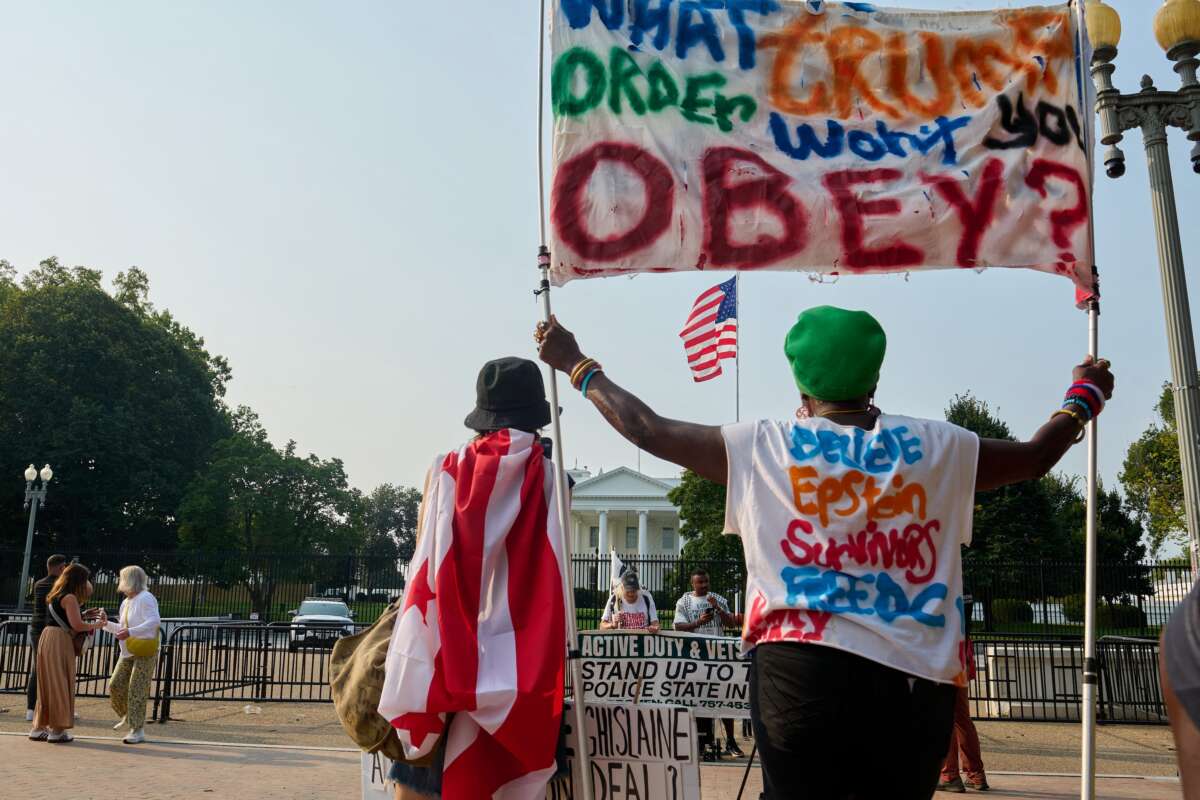The deployment of the National Guard and Immigration and Customs Enforcement (ICE) agents to major cities has ignited a significant movement among Black activists opposing federal policing. President Donald Trump‘s actions have prompted organized resistance, particularly in Washington, D.C., and Chicago, where communities are mobilizing to confront what they perceive as an unjustified show of force.
In Washington, D.C., the threat of heightened federal presence has galvanized local activists. NeeNee Taylor, co-founder and executive director of Harriet’s Wildest Dreams, has emerged as a leading voice in this resistance. Taylor emphasizes that the narrative of rising crime is being manipulated to justify these deployments, stating, “Trump is at the point where he wants to make [up] numbers and he wants to show like, yeah, D.C. is full of crime.” She argues that police cannot prevent crime but only arrest individuals suspected after the fact.
Despite the overwhelming police presence in D.C., with over 32 agencies overseeing law enforcement, local leaders assert that additional troops are unnecessary. Taylor points out, “We have over 32 agencies that actually have oversight of the people in Washington, D.C. So what we didn’t need is more cops.” The situation has escalated with the addition of 2,000 National Guard troops and numerous ICE agents patrolling the city.
In Chicago, activist Richard Wallace, the founding executive director of Equity and Transformation (EAT), highlights the targeting of vulnerable communities as central to Trump’s militaristic approach. He states, “These threats are centered around Chicago’s most vulnerable communities,” suggesting that cities with significant Black populations are being disproportionately affected.
The ongoing resistance from Black activists has deep historical roots, tracing back to events such as the uprising in Ferguson, Missouri, following the fatal shooting of teenager Mike Brown. This has evolved into a broader movement under the banner of #BlackLivesMatter, which has sought to divest from policing and advocate for transformative societal visions.
Taylor’s organization is actively engaging the community through orientation sessions and a court watch program designed to enhance accountability within the legal system. “Court-watching is a form of mutual aid,” she explains, describing the initiative as essential in light of the current federal deployments.
As preparations intensify, Wallace emphasizes the need for community care networks in Chicago. He states, “What that looks like for us is deploying rapid response actions across the city of Chicago, establishing networks for community care.” His organization is currently collaborating with progressive attorneys to develop materials that educate residents about their rights when confronted by federal agents.
The movement is also fostering solidarity among diverse communities. Wallace notes the importance of working alongside groups such as the Illinois Coalition for Immigrant and Refugee Rights (ICIRR) to advocate for immigrant rights in the face of increasing federal enforcement.
In Washington, D.C., the Free DC Project has initiated cop-watch programs and rapid-response teams to protect vulnerable residents from ICE actions. Volunteers are being trained in “Active Bystander Skills” to respond effectively when federal agents are present.
Trump’s focus on cities with large nonwhite populations, including Los Angeles, D.C., and Chicago, has raised alarm among local leaders. The deployment of the National Guard in Los Angeles has come at a cost of $120 million to taxpayers, while social welfare programs are facing significant cuts under the Trump administration.
Taylor points out that the impact of these policies extends beyond Black and Brown communities, stating, “We are at a point now where white people are impacted.” She underscores that increased police funding often comes at the expense of essential social services, perpetuating a cycle of inequality.
To address the root causes of crime, Black organizers advocate for long-term solutions focused on reducing wealth inequality. Wallace’s organization, EAT, has launched the Chicago Future Fund, a guaranteed income pilot program for formerly incarcerated individuals. The first round of this initiative provided $500 monthly stipends to 30 participants, with a second round currently underway involving 100 individuals.
These initiatives reflect a broader vision of investing in community safety and well-being while divesting from traditional policing methods. Wallace asserts, “You don’t get the intra-community violence rates that we see in the city of Chicago without deep divestment.”
Ultimately, Taylor frames the federal police deployments as an assault on democratic principles, arguing that they are less about public safety and more about consolidating control. “It’s about Trump wanting to control the United States of America in a dictatorial way,” she concludes.
As the situation unfolds, the resilience and solidarity among Black activists in cities like D.C. and Chicago may prove crucial in resisting federal overreach and advocating for a more equitable society.
